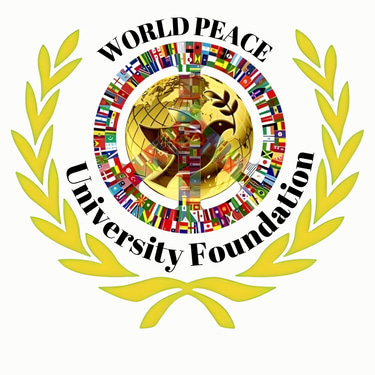The Power of Dialogue in Resolving Conflicts and Promoting Peace
4/23/20243 min read


The Importance of Dialogue in Resolving Conflict
Conflict is an inevitable part of human existence. It arises from differences in opinions, beliefs, values, and interests. In order to prevent conflicts from escalating into violence and to promote peace, it is crucial to engage in dialogue. Dialogue is a powerful tool that allows individuals and groups to communicate, understand each other's perspectives, and work towards finding mutually acceptable solutions.
The United Nations, an international organization founded in 1945, recognizes the significance of dialogue in resolving conflicts and has been actively involved in promoting peaceful resolutions around the world. Through its various agencies, programs, and initiatives, the UN has been working tirelessly to foster dialogue, facilitate negotiations, and mediate between conflicting parties.
Mediation and Negotiation
One of the key ways in which the United Nations promotes dialogue is through mediation and negotiation. Mediation involves the intervention of a neutral third party who assists conflicting parties in reaching a mutually acceptable agreement. The UN often acts as a mediator in conflicts, bringing together conflicting parties, facilitating dialogue, and helping them find common ground.
For example, the United Nations has been actively involved in mediating conflicts in countries such as Syria, Yemen, and South Sudan. Through its diplomatic efforts, the UN has been able to bring conflicting parties to the negotiating table, where they can engage in dialogue, address their grievances, and work towards peaceful resolutions.
Peacekeeping Missions
In addition to mediation and negotiation, the United Nations also undertakes peacekeeping missions to promote dialogue and maintain peace in conflict-affected regions. Peacekeeping missions involve the deployment of UN troops and personnel to areas where conflicts are ongoing or at risk of erupting.
These peacekeepers act as a neutral presence, helping to create a conducive environment for dialogue and negotiations. They provide security, facilitate communication between conflicting parties, and support efforts to resolve conflicts peacefully.
For example, the United Nations has been involved in peacekeeping missions in countries such as Rwanda, Bosnia, and Afghanistan. In these missions, UN peacekeepers have played a crucial role in promoting dialogue, building trust, and facilitating the peaceful resolution of conflicts.
Dialogue for Sustainable Development
Dialogue is not only important for resolving conflicts but also for promoting sustainable development. The United Nations recognizes that sustainable development can only be achieved through inclusive and participatory processes that involve all stakeholders.
The UN encourages dialogue between governments, civil society organizations, and the private sector to address issues such as poverty, inequality, climate change, and human rights. Through platforms such as the Sustainable Development Goals (SDGs), the UN promotes dialogue and collaboration to find innovative solutions to global challenges.
For instance, the UN Climate Change Conferences bring together representatives from countries around the world to engage in dialogue and negotiate agreements to mitigate climate change and adapt to its impacts.
Challenges and the Way Forward
While dialogue is a powerful tool for resolving conflicts and promoting peace, it is not without its challenges. Conflicting parties may be unwilling to engage in dialogue, or deep-rooted divisions and mistrust may hinder the progress of negotiations.
However, the United Nations continues to make efforts to overcome these challenges and promote dialogue. It provides training and capacity-building support to countries and organizations involved in conflict resolution and peacebuilding. It also seeks to address the root causes of conflicts, such as poverty, inequality, and injustice, through its development programs.
Furthermore, the UN emphasizes the importance of inclusivity and the participation of all stakeholders in dialogue processes. It recognizes that sustainable peace can only be achieved when all voices are heard and taken into account.
Conclusion
The power of dialogue in resolving conflicts and promoting peace cannot be underestimated. The United Nations plays a crucial role in facilitating dialogue, mediation, and negotiation between conflicting parties. Through its peacekeeping missions and development programs, the UN creates opportunities for dialogue and collaboration, working towards a more peaceful and sustainable world.
By recognizing the importance of dialogue and supporting efforts to engage in meaningful conversations, we can contribute to the resolution of conflicts and the promotion of peace in our own communities and beyond.
Connect
Email : info@wpufoundation.org
Follow
Stay Connected with Us
+1 (564)243 9111
World Peace University Foundation is 501(c)(3) nonprofit organization EIN - 99-1863511, All donation is tax dedcutable as federal govt rule. ©2024 WPU-F. All rights reserved.
Address
424 W. Bakerview Road, Ste 105-2056
Bellingham, WA 98226 United States
